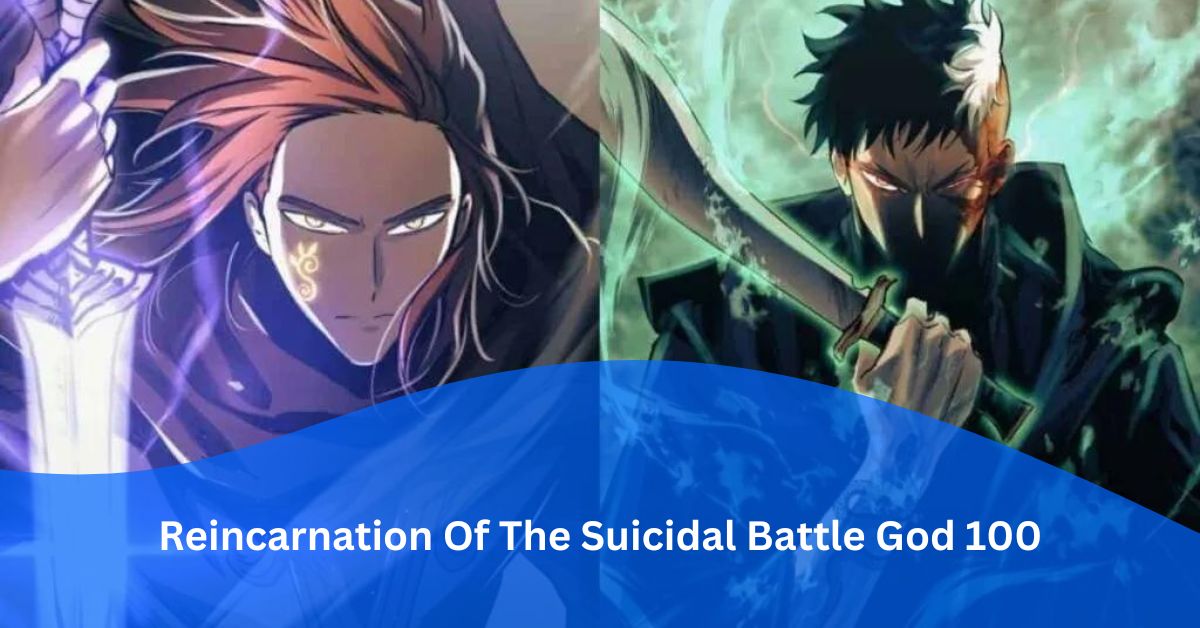The concept of reincarnation has been a fascinating subject for centuries, captivating the minds of people worldwide. Among the many tales and legends, one that stands out is the story of the Suicidal Battle God 100.”
A mythological idea known as the reincarnation of the Suicidal Battle God 100 holds that this god constantly perishes in combat before emerging in new forms to carry on the never-ending conflict.
Let’s explore this topic comprehensively to uncover the answer.
A Brief History- Let’s Explore Now!
Contents
- 1 A Brief History- Let’s Explore Now!
- 2 Powers And Abilities – Get Informed In A Snap!
- 3 Different Cultures’ Views On Reincarnation – Learn The Details Instantly!
- 4 Stories And Legends Of Reincarnation – Learn About It!
- 5 The Impact Of Reincarnation Beliefs On Society – Learn More!
- 6 Frequently Asked Questions:
- 7 Conclusion:
The Suicidal Battle God 100’s origins and history are steeped in mystery and legend. Some stories suggest it emerged from ancient warrior cultures, while others depict it as a divine entity created for a specific purpose.
Regardless of its origins, the Suicidal Battle God 100 is a powerful and enigmatic figure in folklore and mythology, known for its unmatched combat skills and its unique ability to reincarnate after each battle.
Throughout history, tales of the Suicidal Battle God 100 have been passed down through oral tradition, captivating the imaginations of people across different cultures. These stories often depict the deity as a tragic figure, destined to fight and die in endless battles, only to be reborn and continue the cycle.
The concept of the Suicidal Battle God 100’s reincarnation speaks to themes of resilience, sacrifice, and the cyclical nature of life and death. It serves as a reminder of the eternal struggle between good and evil, and the ultimate triumph of the human spirit.
Powers And Abilities – Get Informed In A Snap!
The Suicidal Battle God 100 is a mythical deity known for its extraordinary powers and abilities, making it a formidable and enigmatic figure in folklore and mythology.
One of its most prominent attributes is its superhuman strength, allowing it to overpower even the most formidable foes with ease. This strength is often combined with remarkable agility and speed, making the Suicidal Battle God 100 a swift and deadly warrior on the battlefield.
In addition to its physical prowess, the Suicidal Battle God 100 is believed to possess magical abilities. Some legends depict it as having the power to control the elements, unleashing devastating storms or fires upon its enemies. This magical aspect adds to the deity’s mystique and reinforces its status as a divine being.
Another key aspect of the Suicidal Battle God 100 is its ability to reincarnate after each battle. This unique trait sets it apart from other mythical figures and adds a layer of depth to its character.
The concept of reincarnation adds a sense of immortality to the deity, as it is destined to continue fighting and dying in battles for eternity, symbolizing the cyclical nature of life and death.
Different Cultures’ Views On Reincarnation – Learn The Details Instantly!

Reincarnation is a concept that appears in various cultures and religions around the world, each with its own unique interpretation and beliefs.
In Hinduism, reincarnation is a fundamental belief based on the concept of karma, where individuals are reborn into different life forms based on their actions in previous lives. The ultimate goal is to achieve moksha, or liberation from the cycle of rebirth.
In Buddhism, reincarnation is also a central tenet, with individuals striving to break free from the cycle of samsara through enlightenment. Reincarnation is seen as a continuous cycle of birth, death, and rebirth, with each life presenting an opportunity for spiritual growth and learning.
In Jainism, reincarnation is viewed as a natural process governed by karma, with individuals progressing through an infinite number of lifetimes until they achieve liberation from the cycle of rebirth.
In some Native American and African cultures, reincarnation is believed to occur within the same family or clan, with individuals being reborn to continue their ancestral lineage.
Overall, while the specifics of reincarnation vary among different cultures, the underlying belief in the continuation of the soul after death and the possibility of rebirth is a common theme that transcends cultural boundaries.
Stories And Legends Of Reincarnation – Learn About It!
Stories and legends of reincarnation abound in cultures around the world, showcasing the enduring fascination with the idea of life after death and the concept of rebirth.
These tales often feature individuals who claim to remember past lives or have experiences that suggest a continuity of existence beyond death.
One famous example is the story of James Leininger, a young boy who claimed to be the reincarnation of a World War II pilot. James recounted detailed memories of the pilot’s life, including specific aircraft and battles, which were later verified as accurate.
In another story, a young girl in India claimed to be the reincarnation of a woman who had died in childbirth. The girl was able to provide details about the woman’s life and family that she could not have known otherwise, leading many to believe in the validity of her claims.
These stories, and many others like them, have captured the imagination of people around the world, sparking debate and discussion about the nature of consciousness and the possibility of life beyond death.
While skeptics dismiss such stories as mere coincidence or fabrication, believers see them as evidence of the soul’s journey through multiple lifetimes, adding to the rich tapestry of human belief in reincarnation.
The Impact Of Reincarnation Beliefs On Society – Learn More!

The belief in reincarnation has had a profound impact on society, influencing everything from religious practices to cultural traditions. One of the key impacts is seen in how individuals approach life and death.
The belief in reincarnation often leads people to view death not as the end, but as a transition to another life. This perspective can offer comfort and hope, particularly in times of grief and loss.
Additionally, the belief in reincarnation has influenced ideas about morality and ethics. Many cultures that believe in reincarnation also subscribe to the concept of karma, where actions in this life will affect one’s circumstances in future lives. This belief can lead to a strong emphasis on ethical behavior and the importance of leading a virtuous life.
In some cultures, the belief in reincarnation is used to explain societal inequalities. The idea is that individuals are born into different circumstances based on their actions in past lives. This belief can lead to a greater acceptance of social hierarchy and a sense of resignation to one’s place in society.
Frequently Asked Questions:
1. Is reincarnation a real phenomenon?
The reality of reincarnation is a matter of belief and interpretation. While some cultures and individuals believe in reincarnation, others do not.
2. Are there any scientific studies that support the existence of reincarnation?
There have been studies on cases of past-life memories and near-death experiences that some interpret as evidence of reincarnation. However, the scientific community remains divided on the validity of such claims.
3. Can anyone be reincarnated, or is it only certain individuals?
The belief in reincarnation varies among different cultures and religions. Some believe that everyone is reincarnated, while others believe it is only certain individuals who are reincarnated based on their actions in previous lives.
Conclusion:
The story of the Suicidal Battle God 100 and the concept of reincarnation associated with it offer a fascinating glimpse into the human psyche and our beliefs about life, death, and the afterlife.
Read:


